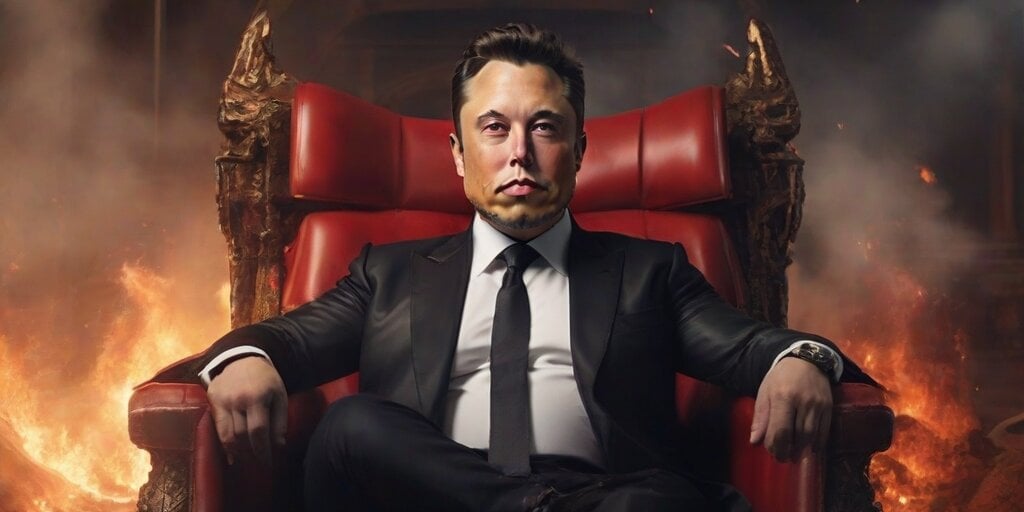Long criticized for being a platform overrun by disinformation and illegal content, Twitter now faces its first official European Union government inquiry over its handling of posts related to the war between Israel and Hamas.
The move comes after Twitter responded to the EU’s new Digital Services Act (DSA) by providing a content moderation report prepared in September, a transparency report from November, and “a formal request for information about illegal content in connection to Hamas’ attacks on Israel,” according to Reuters. Twitter is, to date, the only major platform to be targeted under the act.
Firms violating the DSA could face penalties of up to 6% of their global turnover. For context, Twitter’s revenue in 2022 was in the range of $4.4 to $5.22 billion according to varying reports.
The EU commission’s action is only the latest chapter in a heated dispute between Twitter and its owner, Elon Musk.
Thierry Breton, the EU industry chief, revealed the probe’s focus in a concise statement.
“Today we open formal infringement proceedings,” he wrote on the social media platform in question. The charges include a suspected breach of obligations to counter Illegal Content and Disinformation, a suspected breach of transparency obligations, and a suspected Deceptive Design of the user interface.
Musk has been vocal about the platform’s moderation strategies, challenging the EU’s allegations.
“Are you taking action against other social media? Because if you have those issues with this platform, and none are perfect, the others are much worse,” he said in a reply to Breton’s post.
Since Musk’s takeover, Twitter has experienced significant shifts in how it works and functions as a business. These changes include a shift in its general political bias, and reinstating banned accounts (and thus losing millions in advertisements as a result—something he says doesn’t worry him that much). These alterations have ignited debates over the platform’s new direction, particularly concerning disinformation and the balance between open discourse and responsible content management.
Central to the inquiry is the ‘Community Notes’ feature. Introduced earlier this year, it empowers users to flag misleading content, essentially crowd-sourcing fact-checking, which may be questioned as an ineffective way to fact-check the content shared on Twitter and a insufficient commitment to responsible information.
“To help enable free expression and conversations, we only intervene if content breaks our rules,” Twitter said in an official post. “Otherwise, we lean on providing you with additional context.”
The company adds that misleading information “is identified through a combination of human review and technology, and through partnerships with global third-party experts.”
New CEO Linda Yaccarino addressed these concerns in a previous letter shortly after the October 7 attacks, saying the platform deleted thousands of tweets and continues to “respond promptly to law enforcement requests from around the world, including EU member states.”
Yaccarino also noted the predominant role of community notes in the fight against disinformation.
However, the feature has proven to be a double-edged sword. Community notes have previously led to the deletion of posts from high-profile political accounts, including those of the Israeli government and the White House, due to exposed false claims.
The EU’s tough regulatory stance on electronic media is spreading to cover a wide range of electronic interactions, from privacy and social media to AI and fair use.
The European Commission’s recent media policy agreement, the European Media Freedom Act (EMFA), further highlights the EU’s focus on media integrity. Announced earlier this month, the EMFA aims to protect editorial independence, ensure media pluralism, and foster transparency across the EU.
With measures to safeguard journalists, ensure transparent media ownership, and set standards for public service media, the EMFA complements the DSA’s objectives.
In a twist befitting the digital age, Twitter—a platform that prides itself on open discourse—now finds itself at the center of a debate about the very principles it champions. As the EU delves deeper into its practices, the outcome could be a cautionary tale about the complexities of managing free speech in an era where every word we write can reach every corner of the globe.
Edited by Ryan Ozawa.
Stay on top of crypto news, get daily updates in your inbox.
- SEO Powered Content & PR Distribution. Get Amplified Today.
- PlatoData.Network Vertical Generative Ai. Empower Yourself. Access Here.
- PlatoAiStream. Web3 Intelligence. Knowledge Amplified. Access Here.
- PlatoESG. Carbon, CleanTech, Energy, Environment, Solar, Waste Management. Access Here.
- PlatoHealth. Biotech and Clinical Trials Intelligence. Access Here.
- Source: https://decrypt.co/210217/twitter-faces-eu-inquiry-over-failing-to-moderate-illegal-content-and-disinformation




